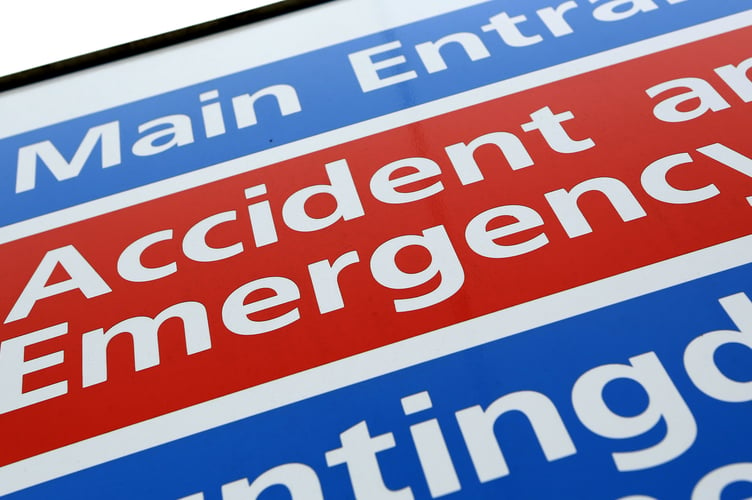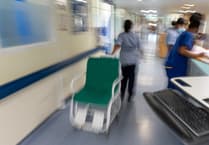More than four in five patients who arrived at accident and emergency at Royal Cornwall Hospitals Trust last month were seen within four hours, new figures show.
The period covered by these figures includes five days of strike action by resident doctors, who staged a walkout as part of an ongoing dispute with the Government over pay.
The NHS standard is for 95% of patients to be seen within four hours. However, as part of a recovery plan, the health service has extended its objective for 78% of patients to be admitted, discharged or transferred within this time frame by March 2026.
Recent NHS England figures show there were 21,203 visits to A&E at Royal Cornwall Hospitals NHS Trust in July. Of them, 17,421 were seen within four hours – accounting for 82% of arrivals.
This means the trust surpassed the recovery target but missed the original standard.
About 76% of patients in England were seen within four hours in A&Es last month, in line with June.
Figures also show 35,467 emergency admissions waited more than 12 hours in A&E departments from a decision to admit to actually being admitted – down from 38,683 in June.
The number waiting at least four hours from the decision to admit to admission also fell, standing at 115,542 in July, down from 118,171 in June.
At Royal Cornwall Hospitals NHS Trust, 705 patients waited longer than four hours, including 178 who were delayed by more than 12 hours.
The British Medical Association, which staged the strike action from July 25-30, has since agreed a "window for negotiations" with Health Secretary Wes Streeting.
A joint statement from Dr Ross Nieuwoudt and Dr Melissa Ryan, co-chairs of the union’s resident doctors committee, said: "We reminded Mr Streeting of the urgent need to provide enough jobs for doctors and bring an end to the current situation where thousands of resident doctors apply for far too few roles, leaving many unable to progress their careers and go on to be our future consultants, GPs and other specialist doctors.
"We are working to ensure strike action does not need to be repeated and will give time to explore solutions. However, doctors and patients both deserve a resolution sooner rather than later."
Despite the reduction in wait times, Dr Nick Murch, president of the Society for Acute Medicine, described the 12-hour wait figure as "unacceptable".
He said: "Clinicians across the UK are reporting this week as one of the worst they have experienced, with no sign of the brief respite seen in the immediate aftermath of recent strike action, yet there remains no tangible and immediate action to address urgent workforce and capacity issues."
About 2.4 million people attended A&E departments across England last month.
The overall number of attendances to A&E at Royal Cornwall Hospitals NHS Trust in July was a rise of 3% on the 20,624 visits recorded during June, and 3% more than the 20,542 patients seen in July 2023.
Mr Streeting said the figures show the NHS "was more resilient against last month’s strike action than ever before".
"We are getting on with the job of delivering progress in the face of strike action, and we will continue to put patients first," he said.
"I had a constructive conversation with the BMA last week and I am glad they’ve agreed to continue engagement through the summer with the mutual aim of preventing further disruption to the NHS and patients."




